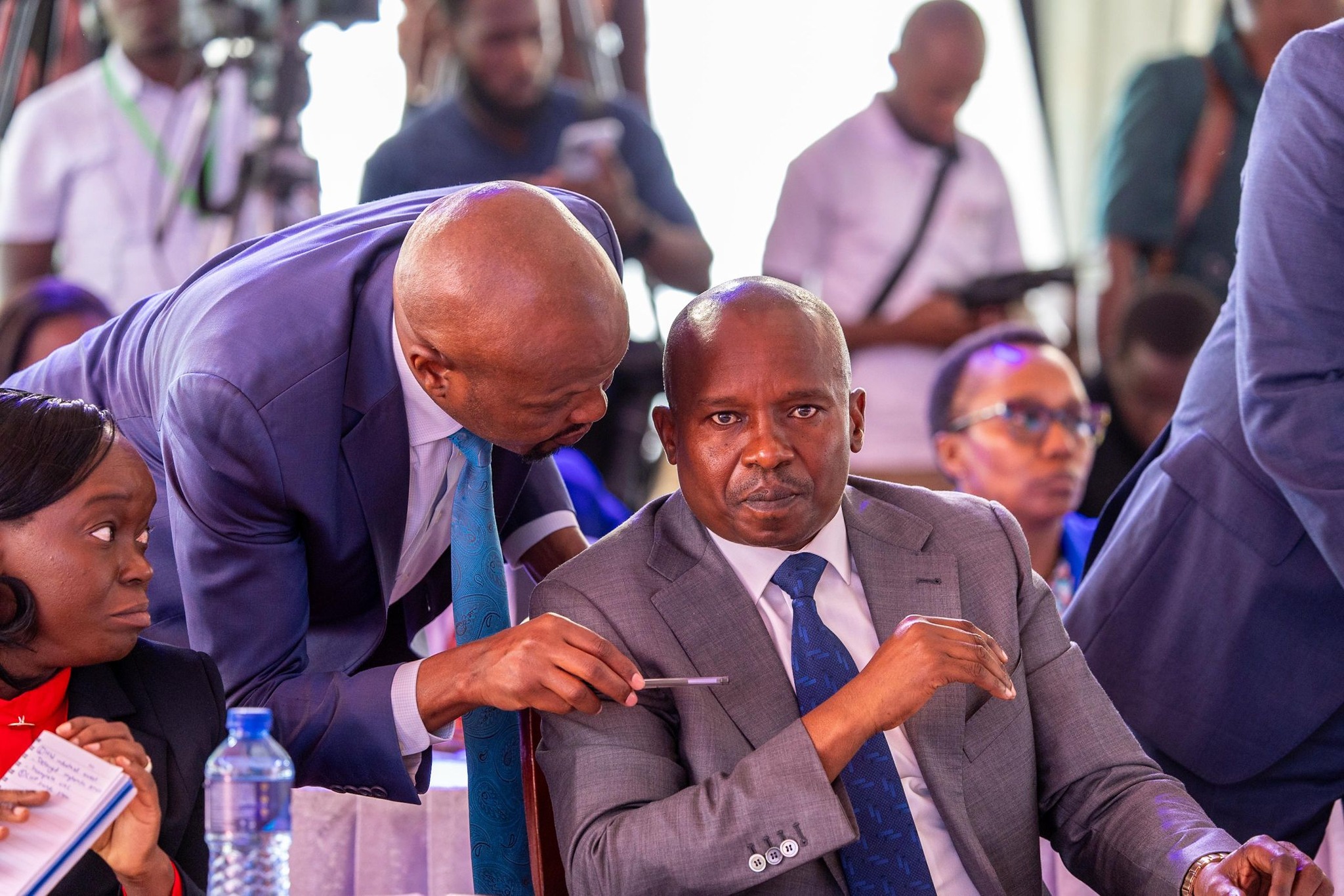![[PHOTOS] Kindiki hosts health summit at Karen office](/_next/image?url=https%3A%2F%2Fcdn.radioafrica.digital%2Fimage%2F2025%2F02%2F070adb55-bd23-415d-bdab-47e3cb45113d.jpeg&w=3840&q=100)
 Deputy President Kithure Kindiki during the
National and County Governments Health Summit at his Karen residence/DPCS.
Deputy President Kithure Kindiki during the
National and County Governments Health Summit at his Karen residence/DPCS.The government is providing additional funds to cover the high cost of treating chronic diseases and provision of critical care under Taifa Care as it hastens review of the Means Testing Tool to ascertain accuracy in monthly contributions, Deputy President Kithure Kindiki has said.
Speaking on Monday, Kindiki said the government had heard pleas by Kenyans to increase allocations for medical care in Intensive Care Units, High Dependency Units and care for chronic diseases as well as the re-evaluation of the testing tool.
The Deputy President said the Supplementary budget to be tabled in the National Assembly on Tuesday targets raising the benefits for those in need of critical care.
An additional Sh3 billion is being added to the chronic and critical illnesses kitty and another Sh3 billion for the primary healthcare fund. Also, an additional Sh1.8 billion to boost the maternity healthcare services.
“The Supplementary Budget to be presented in Parliament will cover the provision of emergency critical care and treatment of chronic ailments. This has been factored in to ensure full benefits for patients in the ICU, HDU and crucial and chronic diseases management. This adjustment has come from the feedback the last five months,” DP revealed.
The DP spoke during a High Level Consultative Summit on the Implementation of Taifa Care at the Official Residence in Karen, assuring Kenyans that the government is fully focused on ensuring the success of Taifa Care programme that targets providing healthcare to all citizens.
The Summit brought together health stakeholders in the national and county governments, development partners, and other actors in the sector for stock-taking of Taifa Care implementation and how to make it better for all Kenyans.
Further, the DP said the new Means Testing Tool will be in place by the end of this month and will be more efficient and free of the implementation challenges as asked by the public.
“We must have the new means testing tool by February 28. The testing tool will provide for an objective, data-based mechanism that is not susceptible to manipulation. A tool that will give a clear and scientific assessment and generate a predictable premium for Kenyans,” said Prof. Kindiki.
President William Ruto’s administration has placed successful implementation of the Universal Healthcare Coverage programme—Taifa Care—on top of its agenda and seeks to put all citizens under it.
So far, 19.5 million Kenyans have registered and efforts are being intensified to ensure more are enrolled. Of these, 3.5 million are making monthly contributions.
Despite the operational hurdles reported, the DP said there is not turning back.
“Providing UHC is a complex, expensive, and politically risky enterprise because of the requirements that go with its delivery. However, this administration is committed in partnership with the county governments to deliver UHC for all the people of Kenya,” DP affirmed.
All the registered Kenyans are enjoying free primary health, the DP indicated, calling on all stakeholders to encourage them to continue with their monthly contributions to be eligible for critical care.
“Taifa Care is essentially the most consequential intervention that this government is making. It is personal to every Kenyan and to every household. Given its importance, we are not leaving anything to chance,” said Prof. Kindiki.
“We are determined because we believe the economic transformation of our country relies on a healthy population. Health and education are the two social sector enablers that will help us transform Kenya as they complement the other pillars of economic transformation,” the DP added.
The DP also gave an assurance to Kenyans that there will be no interruptions to healthcare provision following withdrawal of funding by the US government.
“I assure the nation that we remain focused to ensure any policy decision by our development partners does not affect delivery of healthcare services to the people of Kenya. We are making all necessary contingencies and arrangements to ensure no disruption of services to the people of Kenya,” he said.
Council of Governors Chairman Ahmed Abdullahi said the county governments are working hand-in-hand with the Ministry of Health to solve the teething issues for smooth implementation of UHC.
“Beyond the teething problems, the average Kenyan will be better off with access to healthcare. The challenges are complex but not insurmountable. Through structured collaboration between the Ministry of Health and Counties, we can build a resilient healthcare system serving all Kenyans efficiently,” said Governor Abdullahi.












